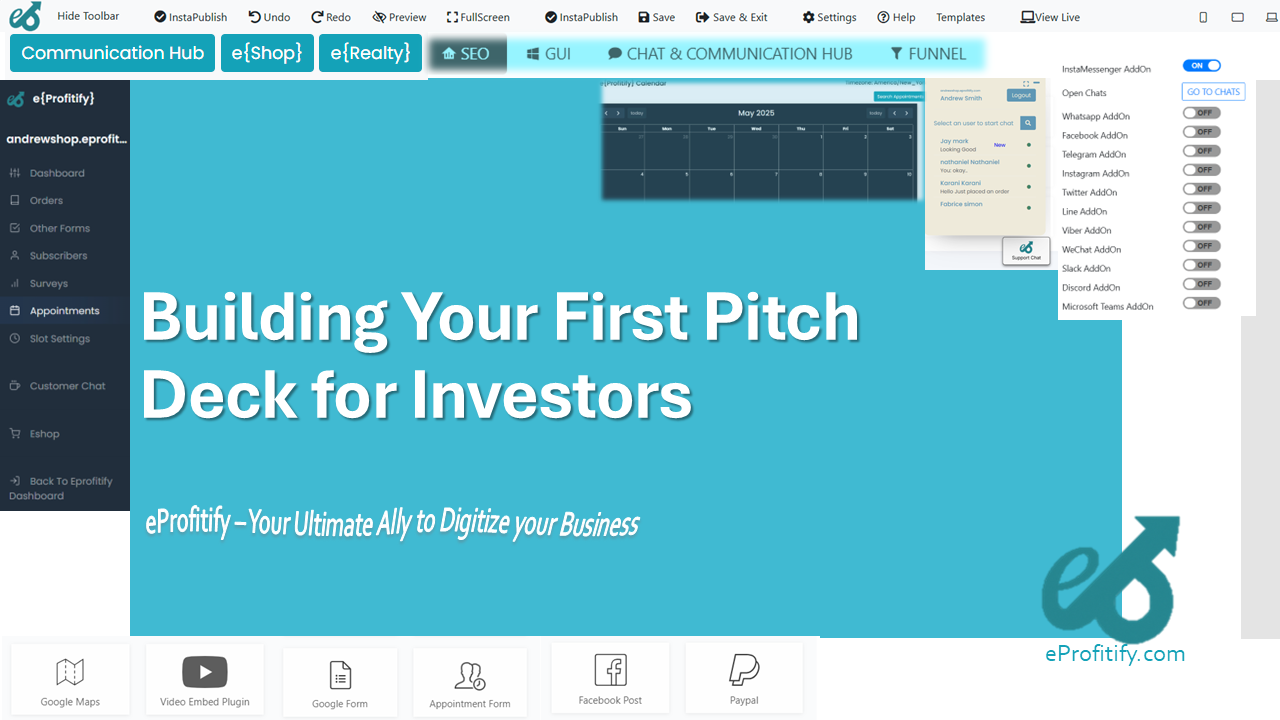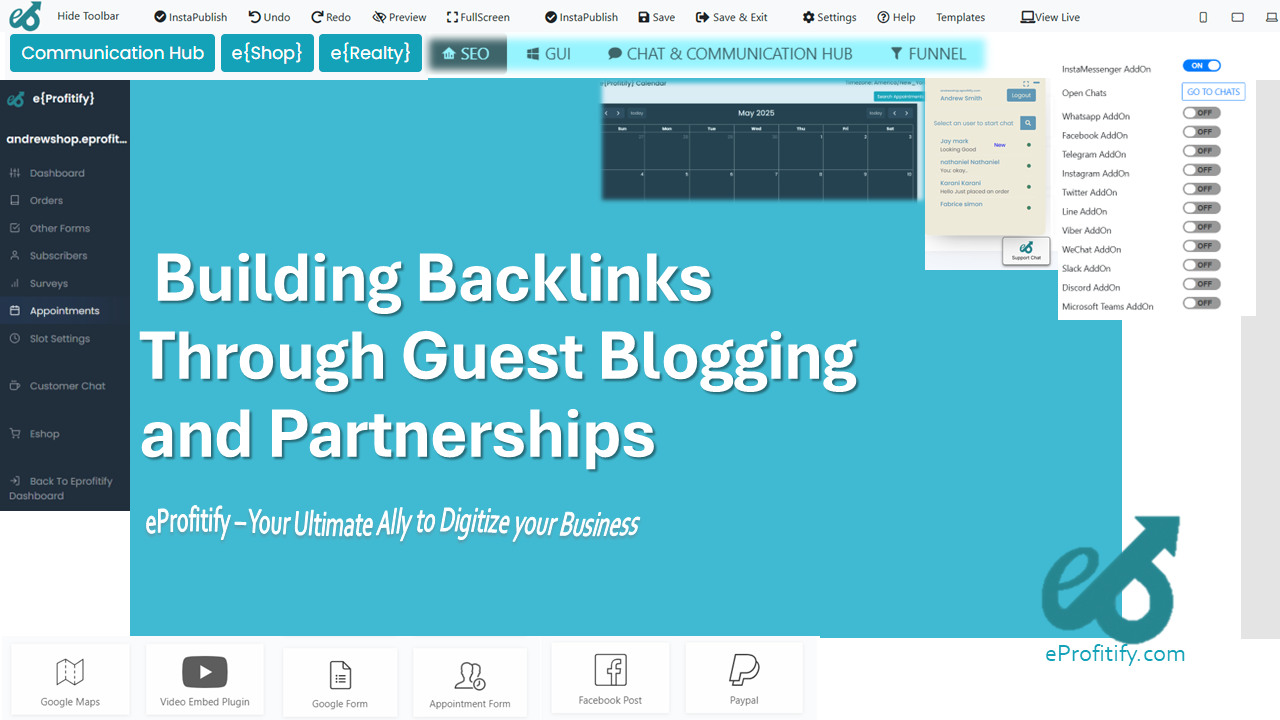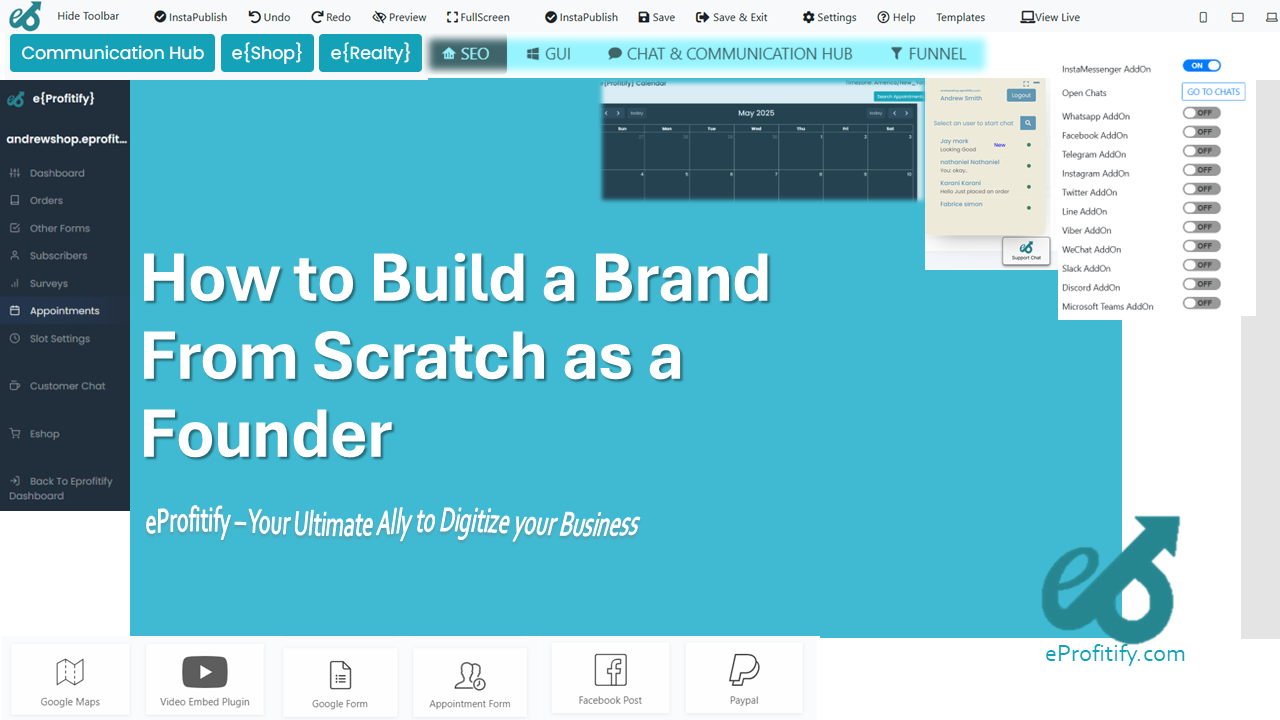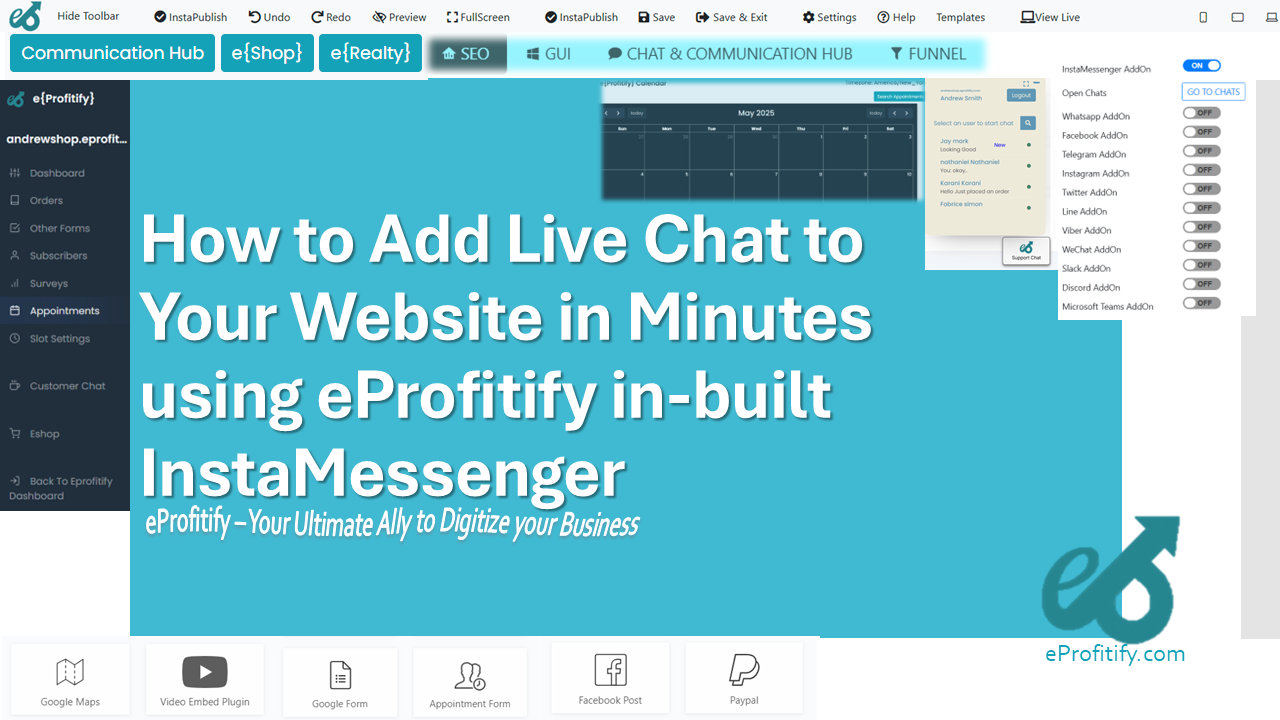How to Handle Multiple Offers on a Property
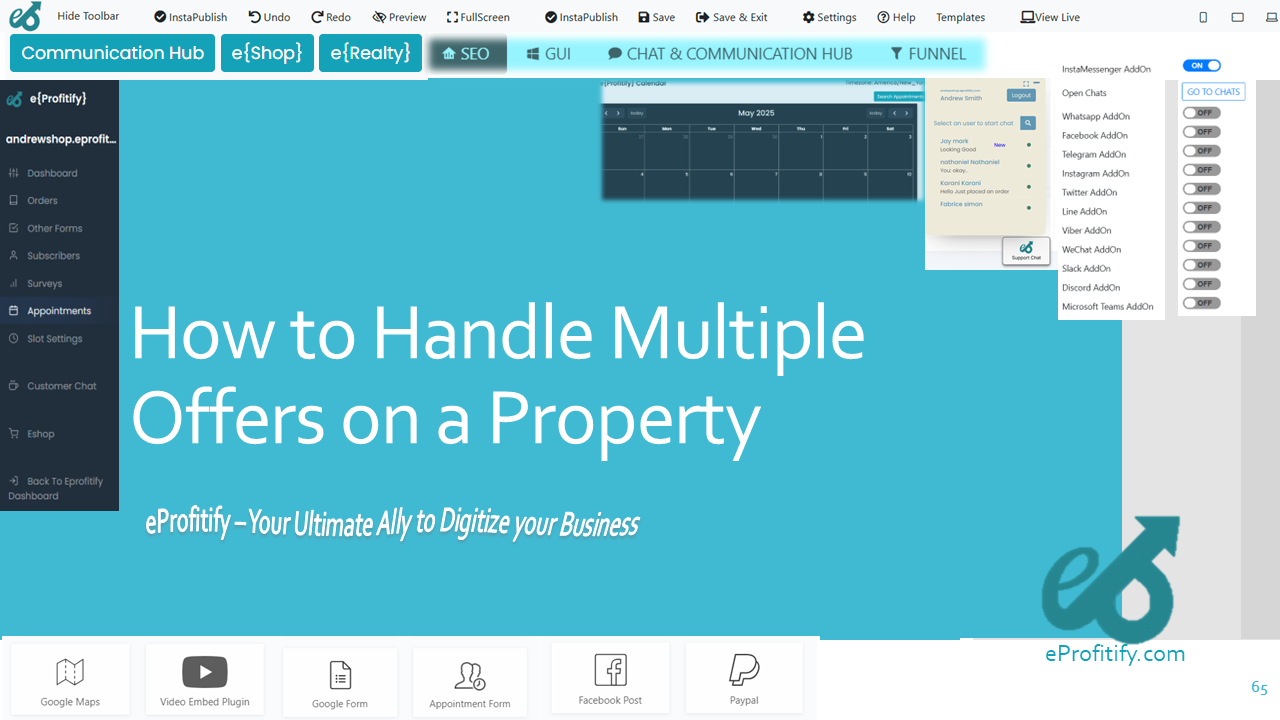
How to Handle Multiple Offers on a Property: Strategies, Statistics, and the Role of Technology
The U.S. real estate market remains fiercely competitive, with bidding wars and multiple-offer scenarios becoming commonplace. According to the National Association of Realtors (NAR), as of 2023, 41% of homes sold above their list price, while Redfin reports that 46% of buyers faced competition in early 2024. For sellers, navigating multiple offers can maximize profits, but for buyers, standing out requires strategy. This guide explores actionable tactics for handling multiple offers, supported by industry statistics, and highlights how platforms like eProfitify—a leading website publishing and management tool—can streamline the process for real estate professionals.
The Rise of Multiple Offers: Key Statistics
- 1 in 3 homes receive multiple offers within a week of listing (Zillow, 2023).
- The average property spends just 18 days on the market in competitive metros (NAR, 2023).
- 28% of buyers waived contingencies to strengthen their bids in 2023 (Redfin).
- 63% of agents cite limited inventory as the primary driver of bidding wars.
These stats underscore the importance of preparation for both buyers and sellers. Let’s break down strategies for each party.
For Sellers: Maximizing Value in a Competitive Market
1. Set a Strategic Listing Price
Aim slightly below market value to attract more bids. Homes priced 5–10% below comparable properties often incite competitive bidding, driving the final sale price upward.
2. Establish a Clear Offer Deadline
Set a deadline for offers (e.g., 5–7 days post-listing) to create urgency. This tactic compels buyers to submit their best bids quickly.
3. Leverage Escalation Clauses
An escalation clause automatically increases a buyer’s offer by a predetermined amount if competing bids exist. In 2023, 22% of sellers used escalation clauses to secure higher prices (NAR).
4. Prioritize Contingency-Free Offers
Offers with waived inspection or financing contingencies reduce the risk of delays. However, sellers must weigh risks, as 15% of such deals fall through due to hidden issues (HomeLight).
For Buyers: Standing Out in a Crowded Field
1. Get Pre-Approved, Not Just Pre-Qualified
A full mortgage pre-approval signals serious intent. In 2023, 39% of winning bids included pre-approval letters (Redfin).
2. Offer Flexibility
Adjust closing timelines, offer earnest money deposits (3–5% of the purchase price), or propose rent-back agreements to accommodate sellers’ needs.
3. Write a Personal Letter
A heartfelt note humanizes your bid. Though effectiveness varies, 17% of sellers prioritized emotional appeals in 2023 (Zillow).
4. Use an Escalation Clause Strategically
Cap your escalation amount to avoid overpaying. Ensure proof of competing bids is required to activate the clause.
The Role of Technology: Streamlining Multiple-Offer Scenarios
Managing multiple offers demands seamless communication, organization, and transparency. This is where eProfitify shines as a comprehensive solution for real estate professionals.
Instant Messaging
eProfitify’s built-in chat feature enables real-time communication between agents, buyers, and sellers. Quick responses are critical in fast-paced negotiations, and instant messaging reduces delays.
Appointment Management System
Coordinating property showings and meetings is effortless with eProfitify’s automated scheduling tool. Agents can block off timeslots, send reminders, and sync with calendars to avoid overlaps.
CRM Integration
Track client interactions, offers, and follow-ups in one place. eProfitify’s CRM helps agents manage buyer preferences, monitor offer deadlines, and send personalized updates.
Ecommerce Tools
From processing earnest money deposits to generating digital contracts, eProfitify’s ecommerce suite simplifies transactions. Secure payment gateways ensure compliance and speed.
Analytics Dashboard
Gain insights into market trends, offer patterns, and client behavior with real-time data. Agents can use this to advise clients on competitive pricing or negotiation tactics.
Ethical Considerations and Best Practices
While competition can be intense, maintaining integrity is critical:
- Transparency: Disclose all offer details (e.g., escalation clauses) to avoid legal disputes.
- Fairness: Avoid “bully offers” (pre-deadline bids demanding immediate attention) unless sellers explicitly permit them.
- Documentation: Use platforms like eProfitify to maintain audit trails of communications and offers.
Conclusion
Handling multiple offers requires a blend of strategy, speed, and empathy. Sellers must balance maximizing profit with minimizing risk, while buyers need to act decisively without overextending. Technology plays a pivotal role in ensuring efficiency: eProfitify empowers agents to manage offers, clients, and transactions through its robust suite of tools, from CRM to instant messaging. In a market where 1 in 2 buyers compete for homes, adopting these tactics—and the right tech—can mean the difference between closing a deal and missing out.
By leveraging data-driven insights and platforms like eProfitify, real estate professionals and clients alike can navigate the complexities of multiple-offer scenarios with confidence.



